Secretary of State John Kerry today refused to comply with a subpoena to appear before the House Oversight and Government Reform Committee on May 21. Kerry’s refusal is a far cry from his fulsome promises to cooperate with Congress made as he was taking over from Hillary Clinton. Again, the Obama administration finds itself on a collision course with Congress over Benghazi, especially now that House Speaker John Boehner has announced plans for an investigative House Select Committee.
The reason for the attempt to call back Kerry to testify is not what he did – Kerry was a member of the U.S. Senate when Benghazi went down. It is what he has failed to do as Secretary of State to help the investigation.
Specifically, members of Congress want to know why it took a Freedom of Information Act request from Judicial Watch to elicit the incriminating email from Deputy National Security Adviser Ben Rhodes about U.N. Ambassador Susan Rice’s briefing on the Benghazi talking points. More than a year ago, Congress subpoenaed documents from State relating to Benghazi, but this critical document was not among them. Why not? And what else could State be withholding from congressional investigators?
At this point, Kerry’s own words to the House Foreign Affairs Committee on April 17, 2013, are coming back to bite him. At the time he took office, Kerry was full of promises to clear the air regarding Benghazi and cooperate with Congress. Did Kerry protest too much? (To borrow a phrase from Shakespeare’s “Hamlet,” a play about government corruption at the highest levels.) Indeed he did. As soon as Kerry moved from the legislative to the executive branch, he became part of the problem.
Here is what Kerry said:
- In response to Rohrabacher’s complaint that access to the survivors of Benghazi had been withheld from the committee, Kerry interestingly revealed that as a senator, he had known their identities. He promised to appoint someone tomorrow to get the committee the answers, documents and access the committee doesn’t believe it is getting. Seven months after the terrorist attack, “Let’s together find out what happened,” said Kerry.
- In response to a question by Rep. Michael McCaul, R-Texas, about accountability in the State Department bureaucracy for neglecting Ambassador Stevens’ requests for additional security, Kerry promised McCaul to share the results of his internal review as to who at State was negligent. “Sure. You have every right to know,” Kerry said. Asked by Chairman Ed Royce, R-Calif.,if he would share the report itself, Kerry demurred.
- In response to a question by Rep. Ted Poe, R-Texas, about the lack of progress in the investigation of the murders, Kerry said one of his first actions in office was to consult with FBI director Robert Mueller. “We are building a case,” he said. “We will find justice here.”
None of what Kerry promised has happened, and members of Congress want to know why. This is precisely why a Select Committee with extensive investigative powers is so important.


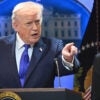









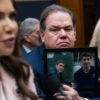

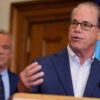












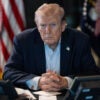


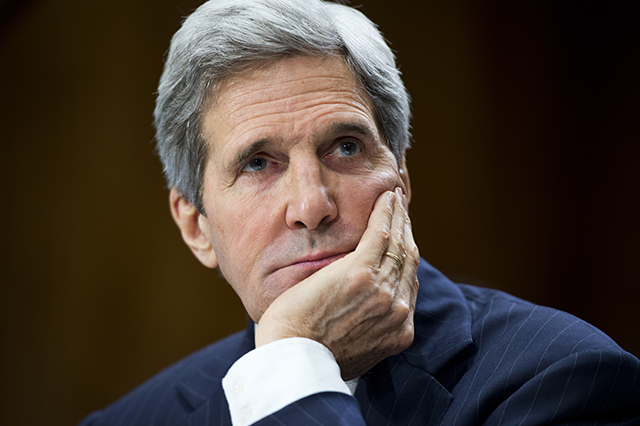
One Reply to “Kerry Snubs Benghazi Subpoena”